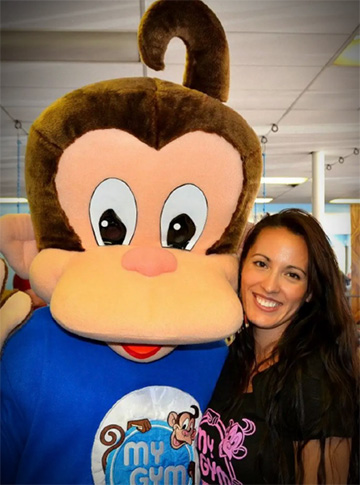By Emily Mora
 It’s no surprise that exercise and active play are important for children of all ages. And, with all the distractions from screens and sedentary activities, it can be difficult for parents to know how to help their kids get what is needed. These days, it’s common knowledge that exercise benefits health, but it’s also important for parents to understand the impact of exercise and active play on a child’s mental, emotional, and social development.
It’s no surprise that exercise and active play are important for children of all ages. And, with all the distractions from screens and sedentary activities, it can be difficult for parents to know how to help their kids get what is needed. These days, it’s common knowledge that exercise benefits health, but it’s also important for parents to understand the impact of exercise and active play on a child’s mental, emotional, and social development.
For sure, physical activity builds strong bones and muscles, improves balance, and increases coordination and agility, all of which generate strength and help prevent injuries. The physical advantages of exercise at a young age, however, go far beyond strengthening the musculoskeletal system. Exercise can benefit every system in the body, including the cardiorespiratory, the endocrine, and the immune systems. Heart and lungs are strengthened in carrying nutrients through the body; the risk of developing chronic disease is reduced, and better regulation of hormones helps keep the body working properly.
In children who exercise, we see increased energy levels and deeper, more solid sleep patterns, leading to heightened mental focus and academic achievement. Stress, anxiety, and depression are lowered while self-esteem blossoms. Studies show that physical activity releases brain chemicals that are natural stress fighters, helping children to manage their moods and the daily pressures of growing up in today’s fast-paced world. Children delight in getting to know and control their own bodies, and the thrill of accomplishment from attaining a physical task builds confidence that carries over into all aspects of a child’s life. An active and physically fit youngster is a happy, healthy one.
Finally, physical activity with peers plays an important role in children’s social-emotional development. Youngsters develop self-control, learn to cooperate, and gain problem-solving techniques. Self-confidence grows by leaps and bounds, and children acquire social skills and learn more about themselves as they interact with one another. Most important of all, however, is the evolving of a healthy self-image. A child who feels good about him or herself has a jumpstart on the path to becoming a happy, well-adjusted adult.
Exercise offers a wonderful opportunity for parent-child bonding. The relationship deepens as the parent supports the child in the physical activity. Encourage your child to exercise. You will be helping that precious little one on to a lifetime of good health, fitness, and improved performance.
Here are some tips to help keep your child active:
· Schedule exercise as a regular part of your child’s daily routine.
· Limit screen time each day with timers and reminders.
· Provide plenty of toys and equipment to facilitate active play.
· Encourage your child to earn minutes of screen time with minutes of physical exercise.
· Make exercise fun and appealing for your little one by focusing on their interests, such as dancing or playing games.
· Exercise together as a family.
· Incorporate pretend play or imagination into physical activity.
· Lead by example and demonstrate positive behavior by staying active yourself.
At My Gym, we provide a safe and supportive environment where children learn to love exercise and reap the benefits of structured physical activity with purpose. We believe in fostering a positive attitude toward health and fitness, a love of movement, and an enjoyment of exercise as a lifestyle. Our My Gym kids and families are well on the road to physical and emotional well-being.
Emily Mora is VP of Corporate Gym Development for My Gym Children’s Fitness Center. She has dedicated her passion for children and fitness to My Gym for over 17 years.
